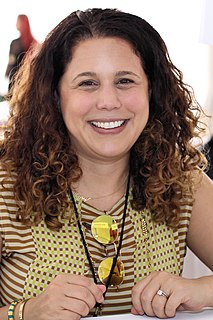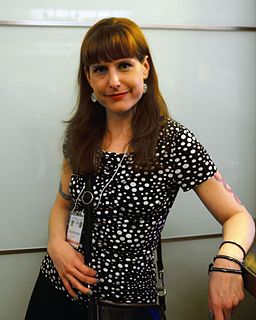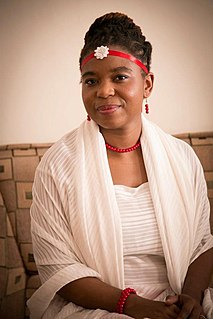A Quote by Karen DeCrow
Despite the strength of the feminist movement in the 1970s and beyond, a fable has persisted that educated women are rejected as marriage partners.
Related Quotes
There is no going back to a time when most women will feel compelled to enter or stay in a bad marriage just for economic security or social respectability. So today, the best way to get women once more interested in getting married and having children is for men to accept women's new insistence on equality. This is, I think, why educated women in America, are now more pro - marriage and more disapproving of divorce than other groups of women who have less experience with egalitarian partners or less clout in getting their needs met in relationships.
The potential significance of Black feminist thought goes far beyond demonstrating that African-American women can be theorists. Like Black feminist practice, which it reflects and which it seeks to foster, Black feminist thought can create a collective identity among African-American women about the dimensions of a Black women's standpoint. Through the process of rearticulating, Black feminist thought can offer African-American women a different view of ourselves and our worlds
It's true that in a lot of western feminist movements, you see women working singularly from men. Suffragettes and the women's rights movement in the 60s here, but when I think of the Islamic feminist movement, I think of a lot of men who are very much standing with the women. It really feels like in equal numbers. Women are catching up in the field because we were not given access to knowledge and encouraged into these studies and so these men are helping us and empowering us. They are men of conscience who are fed up with this assumption that they're entitled.
It's always been important to me to be very upfront with people about the fact that I do identify as a feminist because it's an opportunity to expose people to and educated them about the movement. Young women don't identify as feminist is because they don't know any feminists and don't have a comprehensive understanding of what it is, I gave them example and an opportunity to ask about it. And once they saw that I wasn't the embodiment of the negative feminist stereotype - that I was a normal teen girl just like them - I think they became more open to learning about what feminism really is.
The liberal wing of the feminist movement may have improved the lives of its middle- and upper-class constituency--indeed, 1992 was the Year of the White Middle Class Woman--but since the leadership of this faction of the feminist movement has singled out black men as the meta-enemy of women, these women represent one of the most serious threats to black male well-being since the Klan.
I believe I was raised with feminist values, but I don't think I ever heard my Mom call herself a feminist. Before I identified as a feminist myself, I thought of feminism as more of a historical term describing the women's movement in the '70s but didn't know much about what they had done and didn't think it applied to my life at all.
Norman Mailer loved women so much. I mean probably more than anything in the world he loved women. He got put into a position where he was kind of seen as the anti-feminist, although he was for the feminist movement. He just didn't want people to get consumed with the idea that this was going to be much better. He said, "Look, women should be treated equally and fairly."
Radical militant feminist believes that women of color and Black women in particular have written the cutting edge theory and really were the individuals who exploded feminist theory into the directions that has made it more powerful. So I see us as the leaders not just of Black people and Black women in terms of feminism but in terms of the movement as a whole.
Formerly, many men dominated women within marriage. Now, despite a much wider acceptance of women as workers, men dominate women anonymously outside the marriage. Patriarchy has not disappeared; it has changed form. In the old form, women were forced to obey an overbearing husband in the privacy of an unjust marriage. In the new form, the working single mother is economically abandoned by her former husband and ignored by a patriarchal society at large.




































